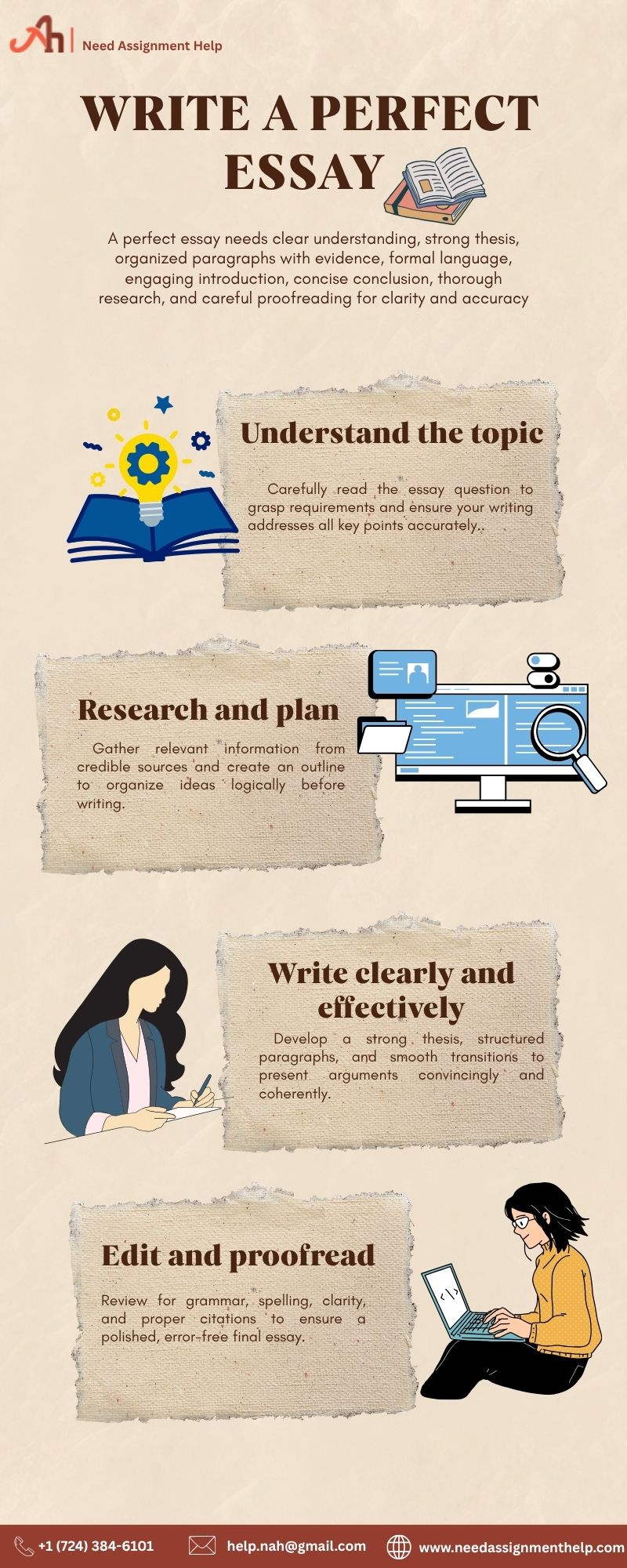Crafting an ideal essay for your English assignment can be daunting, especially when you wish to impress your teacher, communicate clearly, provide structure, and be somewhat creative. An ideal essay demonstrates proficiency in understanding the question/topic, comprehending the English language, and the ability to communicate your ideas effectively. Many students struggle with the grammar, structuring of an essay, and the assignment research for an essay, all of which you can get assignment help for, or use an online assignment help service. The purpose of this guide is to bring you through the full process of a writer’s process to a final essay — from developing and brainstorming, to an outline/proposal (and even researching), and finally the proofreading stage, in order to complete your essay for your English assignment. Whether you are writing a medium paper or a large research assignment, the results will produce a polished essay, persuasive essay, or academic essay.
1. Understand the Essay Requirements
Before writing your essay, you should read the prompt or essay question closely. One important step is to recognize if you will be writing a narrative, descriptive, informative or persuasive essay. Knowing what your instructor is looking for will help you write an essay that meets the assignment. Think about the exact word count; formatting; and citation formatting information provided and how it will affect your writing and essay. If after careful consideration of the assignment directions and prompt you still have questions, you may also want to think about possibly contacting the writing consultants for more advice and discussion regarding writing in the academic context and assignment expectations.
2. Choose an Engaging Topic
Choosing the appropriate topic is the first step in writing an effective essay. Choose an idea that interests you and fits within the context of your course topic. In English papers, the topics will often relate to an idea or theme in a text (literature, language and its use in society). The topic you choose should not be too broad or too narrow. For example, instead of writing about "The Role of Women in Literature," you could write about "The Role of Women in Victorian Novels." If you need assignment help - with suggesting an appropriate topic, online assignment help services usually have a selection of relevant and unique ideas.
3. Conduct In-Depth Research
Research is an essential component of a quality essay. Use reliable evidence from academic journals, books, and other scholarly resources. Take careful notes and collect evidence, examples, and quotes to support your writing. As you research, you'll want to take careful notes and records of your sources. Be sure to have primarily recent references to support your essay question. If you're having trouble finding academic materials, or you're organizing your notes and sources, obtaining an assignment help service can assist you in being more efficient with your time, and accuracy in your essay.
4. Create a Strong Thesis Statement
The thesis is the center of gravity to your essay. It sums up your main idea or hypothesis in one or two sentences. A direct thesis steers your writing, while signaling the reader on what is to be expected. For instance, if you're writing an essay on the evolution of language, you might address your thesis as follows: "The English Language has evolved over time through cultural exchange and technology, thus shaping the way we communicate today." If you're struggling to come up with a concise, and one-sentence thesis, you might consider online assignment help, to get the ball rolling and help you refine what your argument might need to be, while ensuring that your point is succinct and salient.
5. Plan and Outline Your Essay
Creating an outline helps you organize your thoughts logically. Divide your essay into three parts — introduction, body, and conclusion.
Introduction: Present your topic and thesis statement.
Body Paragraphs: Each paragraph should discuss one main point with evidence.
Conclusion: Summarize the key ideas and restate the thesis.
Outlining prevents repetition and keeps your essay coherent. Many students who need assignment help find that professional writers use detailed outlines to maintain flow and structure throughout the essay.
6. Write a Captivating Introduction
The introduction of your essay is the tone-setting element for your work. Here is where you set the hook — either with a question, grab a quote, or an interesting fact. You need to guide us to your being an expert on the content. This hook will also be used to quickly bridge the reader into the thesis statement. Keep it short and interesting. The introduction should prepare the reader to the main focus of the essay. If thinking of the opening makes you nervous, you can always rely on assignment help experts to help you write your opening paragraphs for maximum engagement, while establishing the tone and focus of your essay.
7. Develop Clear and Coherent Body Paragraphs
The body of your paper expands on what you've introduced. Each paragraph in the body should start with a strong topic sentence, then expand on it with supporting evidence and examples to back up that topic sentence. Transitional expressions are essential so the writing flows well from one idea to the next. Try to avoid repeating information already shared to aid in fluency. Trying to offer a balance of analysis and evidence is also important. For example, if you are writing about Shakespeare's "Macbeth", you should include quotations and explain how those quotations apply to your thesis statement. If you struggle with paragraph development, or with how to incorporate evidence into your paragraphs, there is on-line assignment help that can address improvement in depth and organization.
8. Use Proper Language and Style
As your discipline is English, language specificity is important. Use formal, academic language (not slang) and avoid repetitive sentence structures. As always, be mindful of the conventions of grammar, punctuation, and word choice. Reading your essay aloud can unearth awkwardly constructed sentences. It is also helpful to use a writing assistance service or consult with a tutor to verify that your essay is free of grammatical errors and adheres to standard stylistic conventions. Remember, an excellent essay is not simply based on your ideas, but also how well you convey them.
9. Reference and Cite Sources Correctly
Citations offer credit to the original authors and establish your credibility. Follow the required referencing style that your instructor requires, such as APA, MLA, or Harvard. You must include in-text citation(s) and a bibliography at the end of your work. Citations that are incorrect or missing altogether could create issues of plagiarism. If referencing seems confusing, you can seek assignment help from experts who understand citation requirements. Thriving online assignment help platforms normally can offer other formatting and referencing to assist with proper citing in order to make your essay a plagiarism-free paper.
10. Edit and Proofread Thoroughly
It is important to go through the editing phase before submission. Look for grammar mistakes, clarity of sentences, and possible gaps in logic. Be sure that your arguments relate to your thesis, and consider how effective the transition between paragraphs is. Read your paper after taking a break. You are likely to catch mistakes that you did not beforehand. You may also want to think about professional assignment help services that specialize in editing and proofreading to ensure that your paper is free from mistakes. A paper that is neat, clean, and polished provides an impression of professionalism and accuracy
11. Seek Feedback Before Submission
If possible, ask your teacher, classmate, or an online assignment help expert to review your essay. Fresh perspectives can reveal gaps, unclear arguments, or weak evidence. Feedback helps you refine your essay and build confidence in your writing skills. Remember, the goal is continuous improvement — every essay you write helps you grow as a writer.

Conclusion
This report intends to investigate the changing buying behavior and consumer preferences associated with Generation Z (Gen Z), specifically in relation to their consumption of sustainable fashion. Gen Z is the first cohort of consumers that is digital-native, and is frequently having economic influence amid deeply held values associated with environmental responsibility. These elements help to create change in the retail ecosystem. This report pulls together evidence around what propels them to make sustainable purchase decisions, primarily associated with their desire for brand transparency, brand authenticity, and brand social responsibility. The report explores variation in behaviors, particularly with respect to what is known as the value-action gap, that recognizes the distance between their pro-sustainable purchasing values and in-store purchase behavior decisions, complicated with respect to prices and fast fashion in the marketplace.

